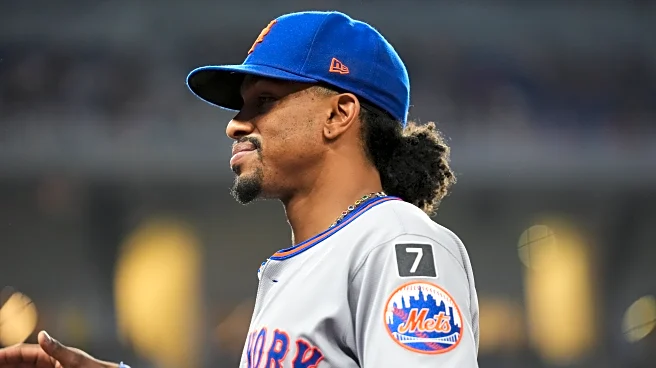What's Happening?
Manchester United navigated a crucial summer transfer window under the guidance of Ruben Amorim, aiming to recover from their worst-ever Premier League season. The club finished 15th last season and lost the Europa League final to Tottenham, missing out on Champions League qualification. Amorim's first summer window saw United secure key signings, including Matheus Cunha, Bryan Mbeumo, Benjamin Sesko, and Senne Lammens, while notable departures included Antony and Alejandro Garnacho. The club focused on strengthening their attacking capabilities, spending over £200 million on forwards, while addressing defensive needs remains a future priority.
Why It's Important?
Manchester United's transfer strategy reflects a shift towards a data-driven approach, prioritizing attacking prowess to improve their goal-scoring record, which was among the lowest last season. This strategic focus aims to reposition United as a competitive force in the Premier League, although challenges remain in balancing the squad and addressing defensive weaknesses. The club's ability to offload high-earning players not fitting Amorim's plans is crucial for financial sustainability and squad cohesion, setting the stage for long-term improvement.
What's Next?
Manchester United will continue to refine their squad through future transfer windows, focusing on defensive and midfield reinforcements. The club's hierarchy is committed to a gradual evolution, aiming to close the gap with top Premier League teams like Liverpool, Arsenal, and Manchester City. Amorim's leadership will be pivotal in steering the club towards consistent performance and potential title contention.










